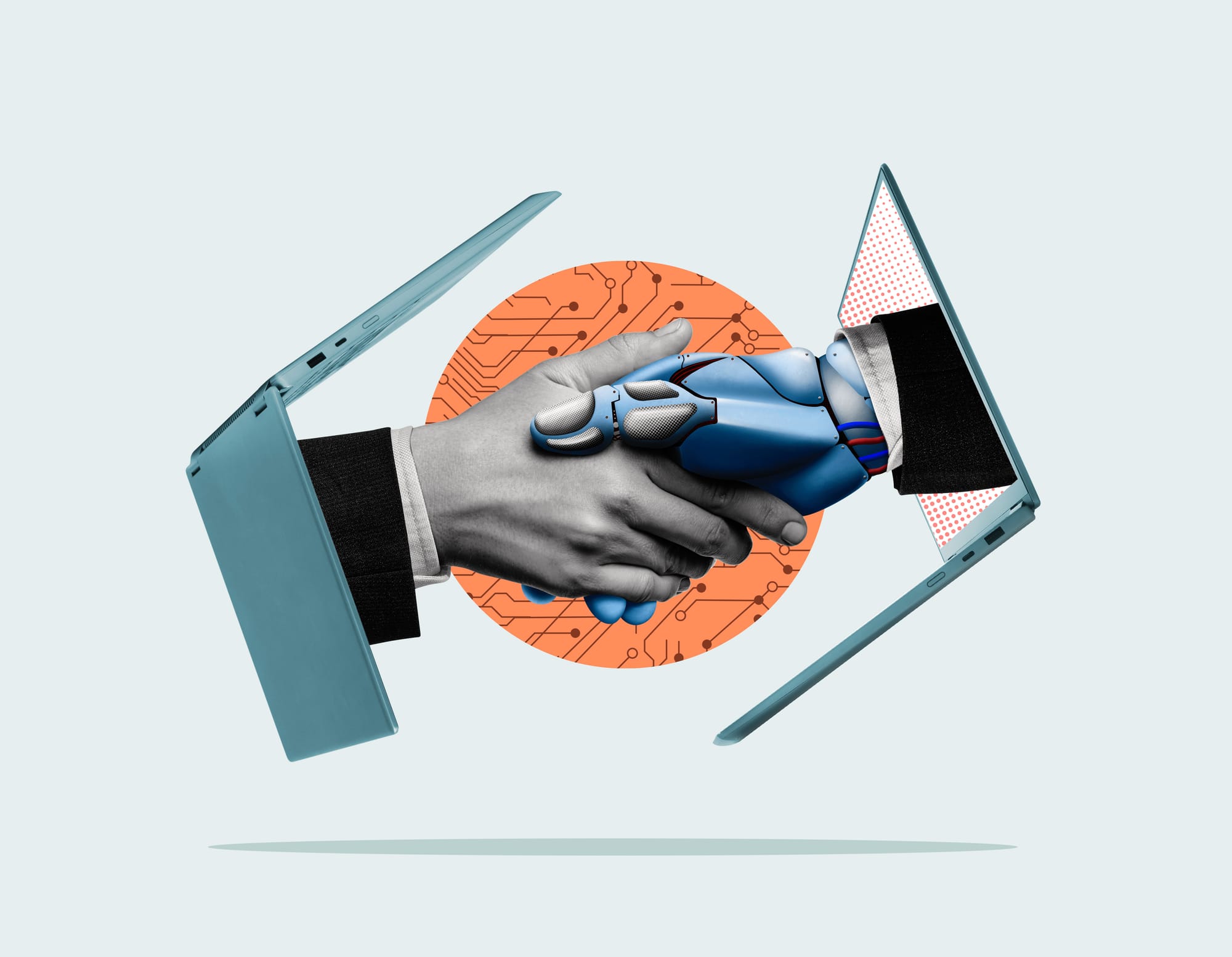THE RISE OF AI IN BUSINESS

The Rise of AI in Business: Transformation Across Industries
The integration of Artificial Intelligence (AI) into business operations has emerged as a key driver of transformative change across various sectors. By automating routine tasks, enhancing data analysis, and enabling more personalized customer interactions, AI technologies are not only shaping the present but also defining the future of business. This article explores the crucial roles AI is playing in transforming business models, improving efficiency, and creating new opportunities for innovation and growth.
Automation and Efficiency
One of the foremost applications of AI in business is the automation of operational tasks. AI-driven robotics and software systems are now capable of performing a range of actions, from basic data entry to more complex functions like managing supply chains and handling customer service inquiries. This shift not only improves operational efficiency but also allows human employees to focus on more strategic tasks, thereby enhancing overall productivity.
Data Analysis and Decision Making
AI has also revolutionized the way businesses analyze data and make decisions. With the ability to process and analyze large volumes of data at unprecedented speeds, AI helps companies to identify trends, forecast demand, and make informed strategic decisions swiftly. Industries such as finance, healthcare, and retail have particularly benefitted from AI's capabilities in data analytics, where precision and speed are crucial.
Personalization and Customer Engagement
In the realm of customer engagement, AI is playing a pivotal role in personalizing user experiences. From tailored product recommendations to personalized marketing messages, AI's ability to analyze individual customer preferences and behaviors is helping businesses enhance customer satisfaction and loyalty. Moreover, AI-powered chatbots and virtual assistants are now commonplace, providing customers with instant and personalized interactions.
Challenges and Ethical Considerations
Despite its numerous benefits, the rise of AI in business also presents significant challenges, particularly concerning ethics and job displacement. The implementation of AI raises critical questions about privacy, data security, and the potential bias in AI algorithms. Moreover, as AI systems take over routine and repetitive tasks, there is an ongoing concern regarding the displacement of jobs, which necessitates careful planning and ethical consideration.
AI Adoption Across Different Sectors
- Healthcare: AI in healthcare is improving patient diagnostics, predicting outcomes, and personalizing patient care. For example, AI-enabled systems can analyze medical images faster and more accurately than human radiologists.
- Finance: In the financial sector, AI is used for algorithmic trading, fraud detection, and customer service, enhancing both security and user experience.
- Retail: AI is transforming retail with advanced inventory management systems, personalized shopping experiences, and optimized logistics and delivery services.
- Manufacturing: In manufacturing, AI-driven robots and predictive maintenance tools reduce downtime and increase production efficiency.
Future Outlook
The future of AI in business looks promising as technological advancements continue to accelerate. Emerging trends include AI-driven augmented analytics, which is set to redefine business intelligence platforms, and AI in cybersecurity, where it can help predict and mitigate potential threats. Furthermore, as quantum computing becomes more accessible, its integration with AI will likely unlock new frontainties previously unimaginable.
Global Impact and Policy Making
On a global scale, the adoption of AI in business necessitates international collaboration on standards and policies to ensure fair and ethical use. Governments and international bodies are increasingly focused on developing guidelines that balance innovation with security and privacy concerns. The global nature of digital economies also calls for cross-border policies and a cooperative framework to regulate AI's application in business efficiently and ethically.
Conclusion
The rise of AI in business marks a new era of innovation and competition. As companies continue to integrate AI into their operations, they not only gain immediate benefits in terms of efficiency and customer satisfaction but also lay the groundwork for future advancements. With responsible implementation and adherence to ethical standards, the transformative potential of AI across business sectors can be fully realized, benefiting companies and consumers alike.